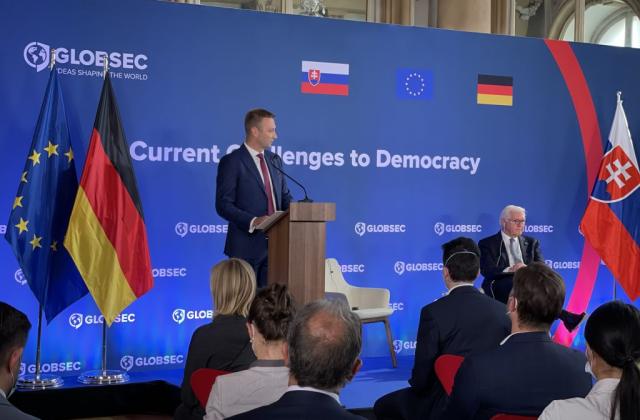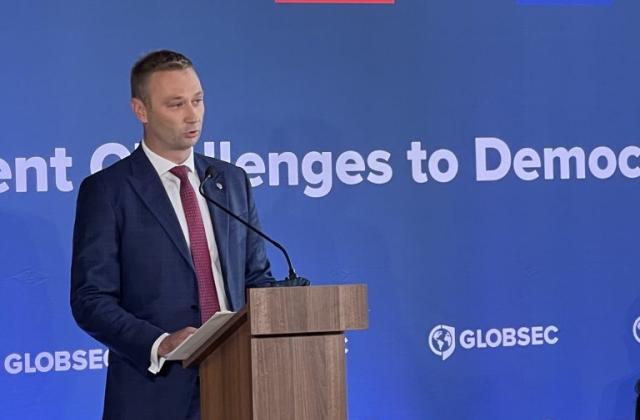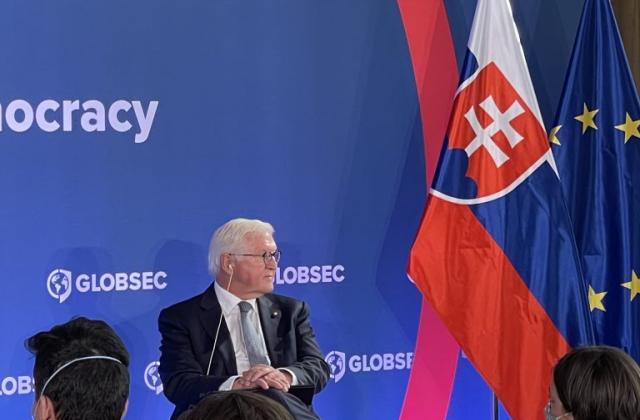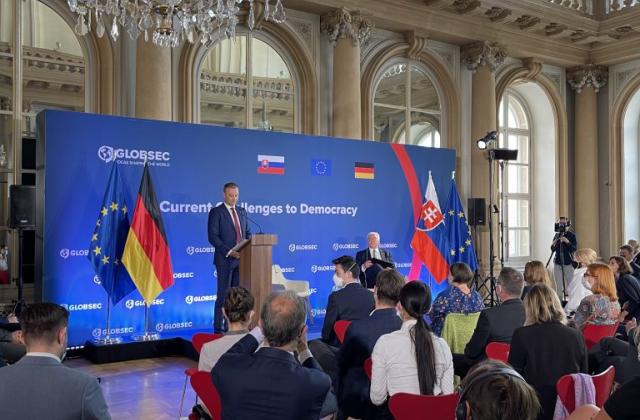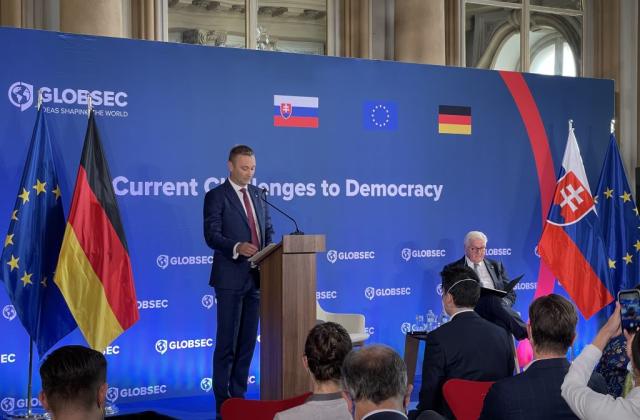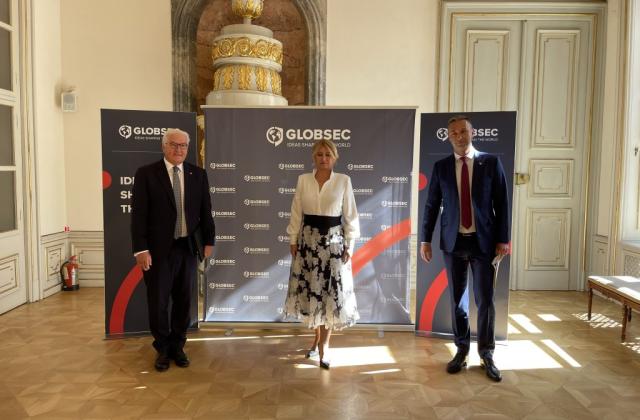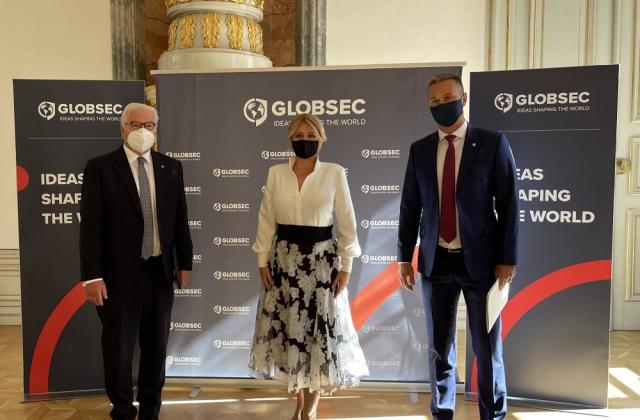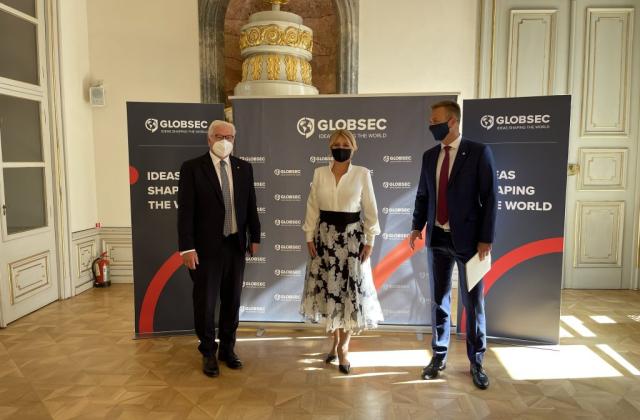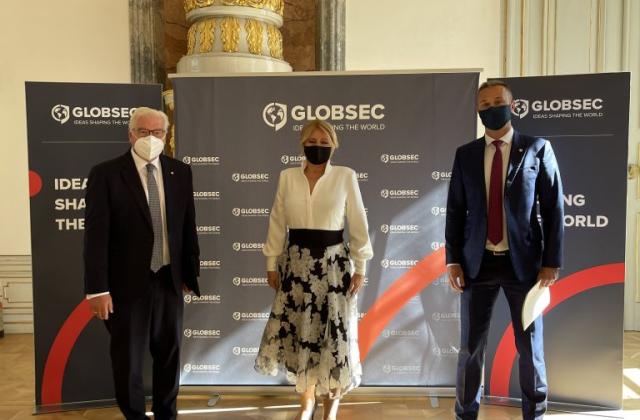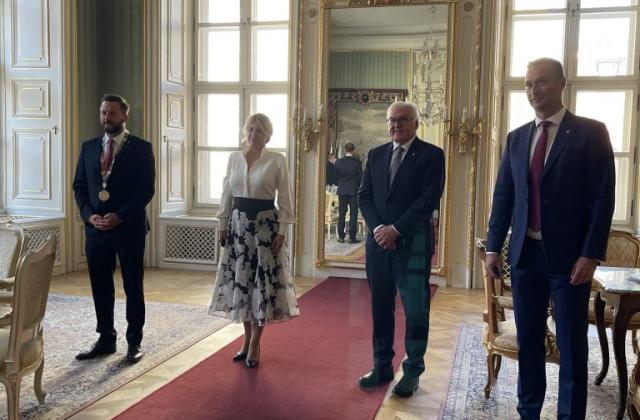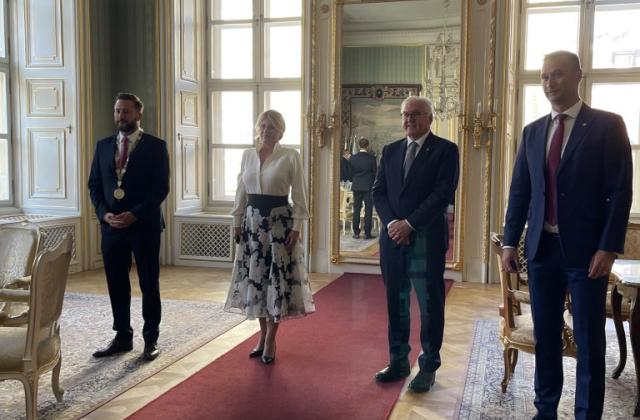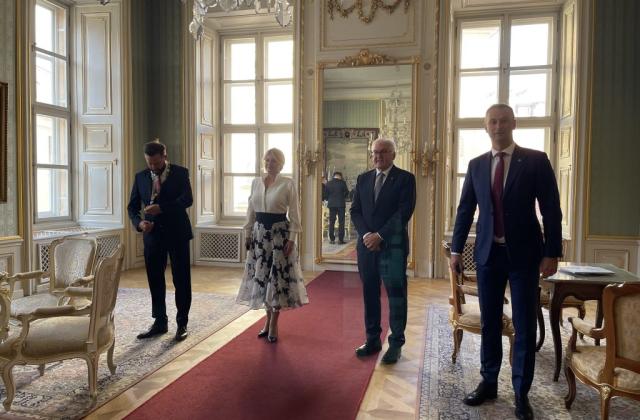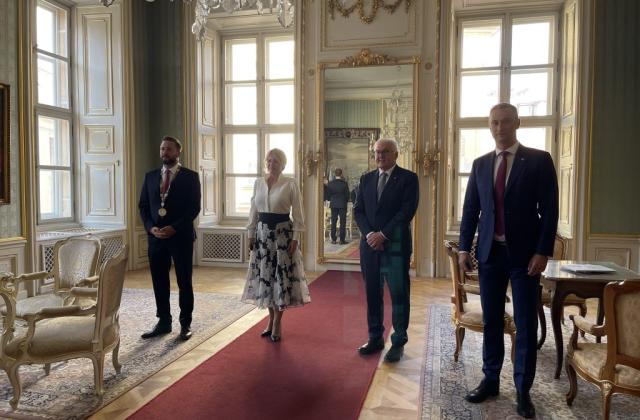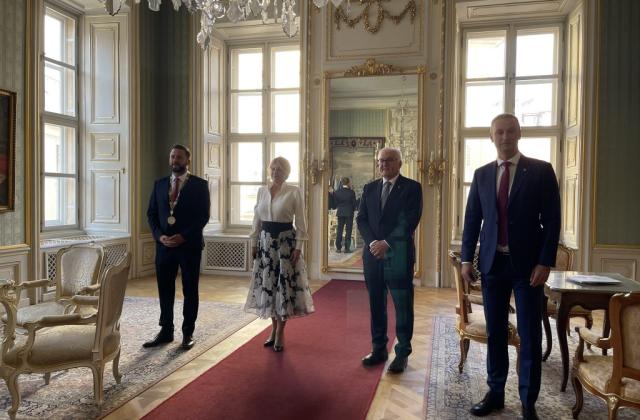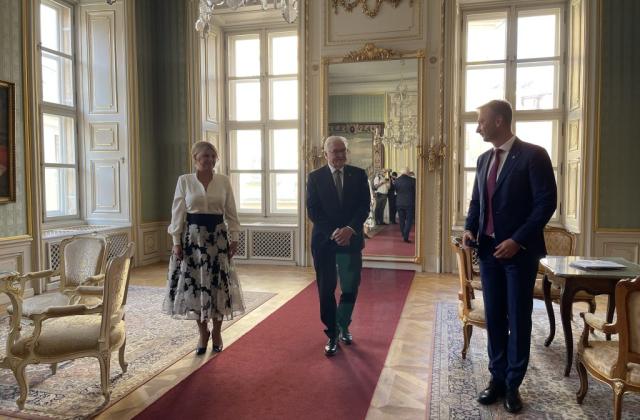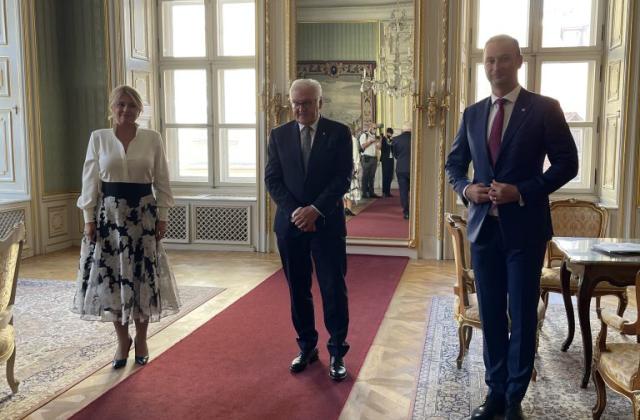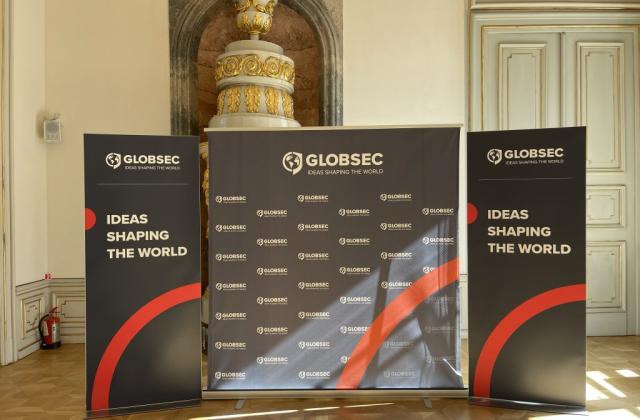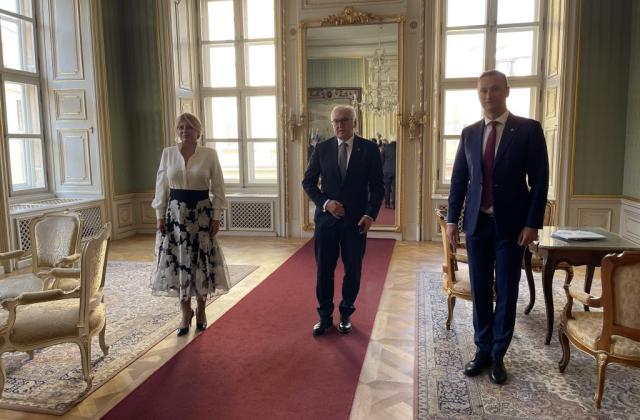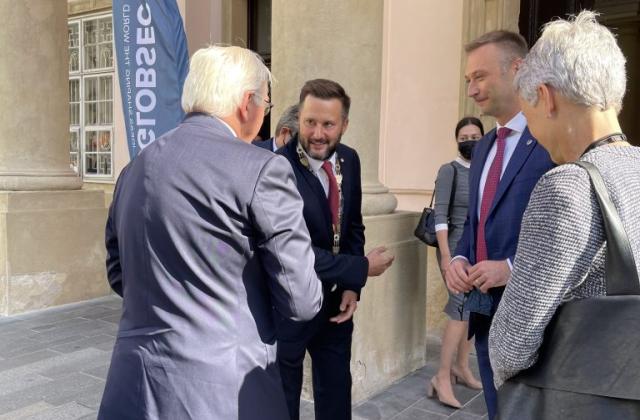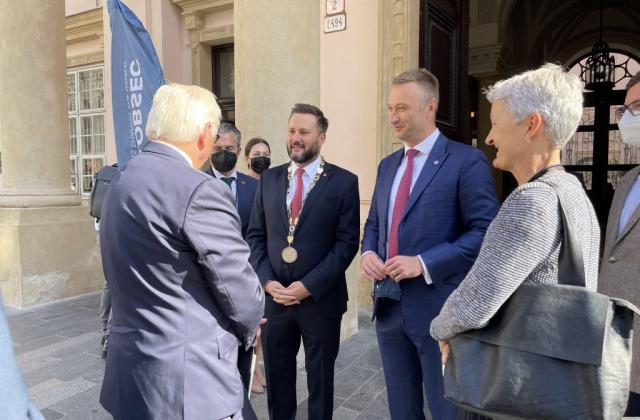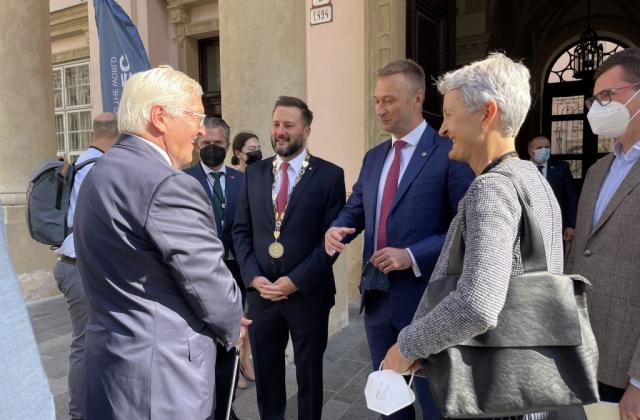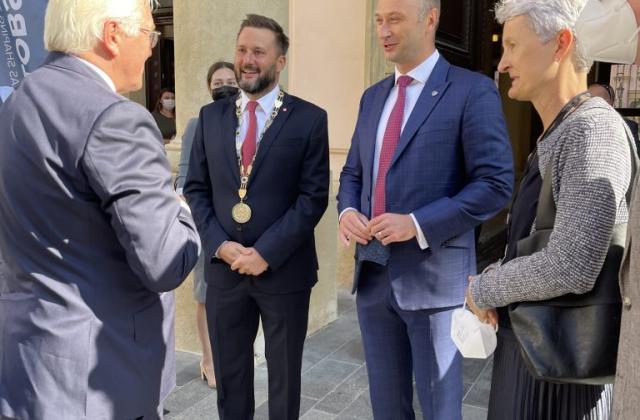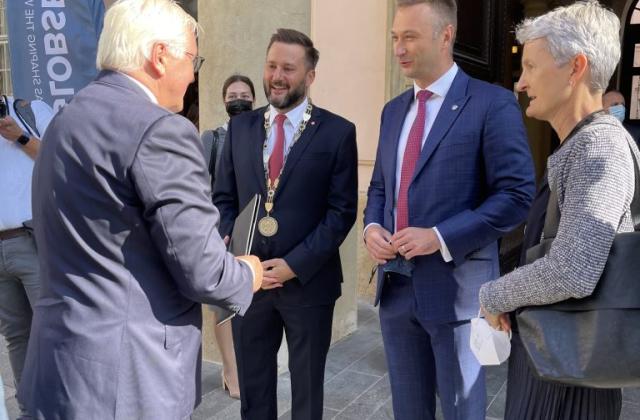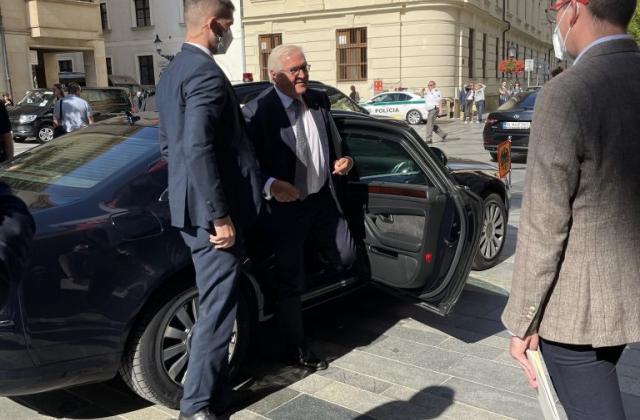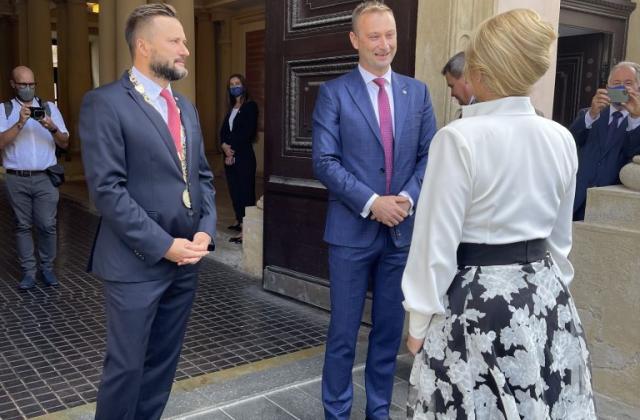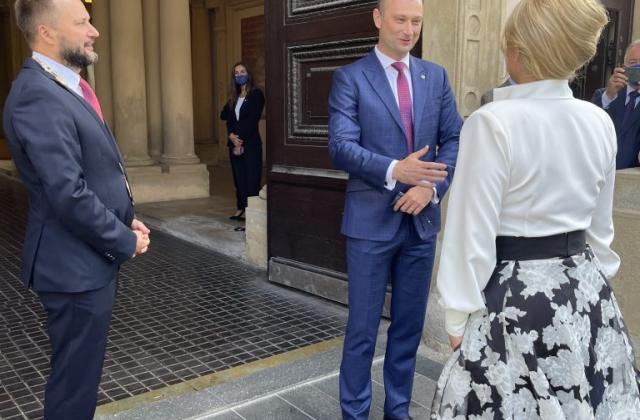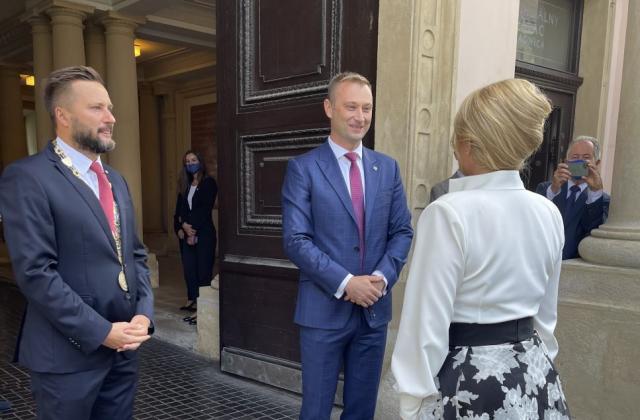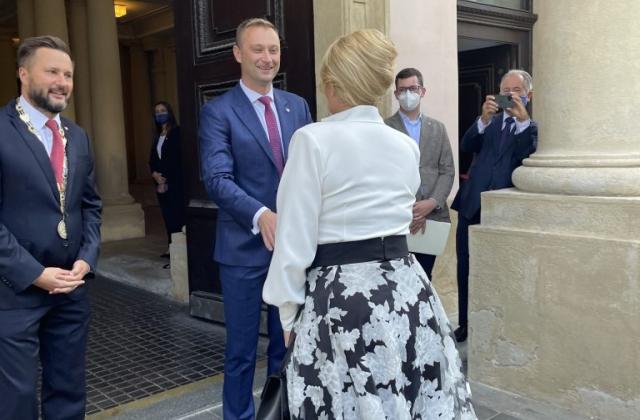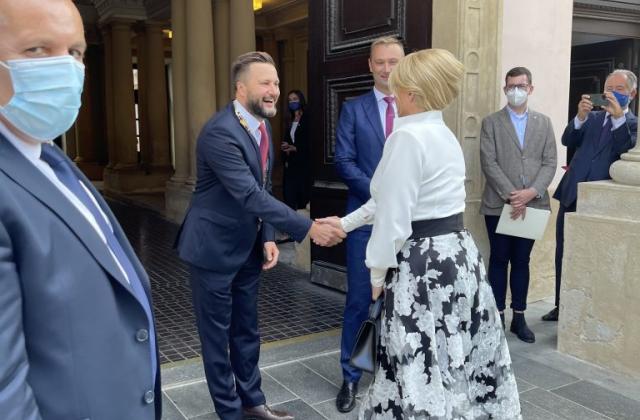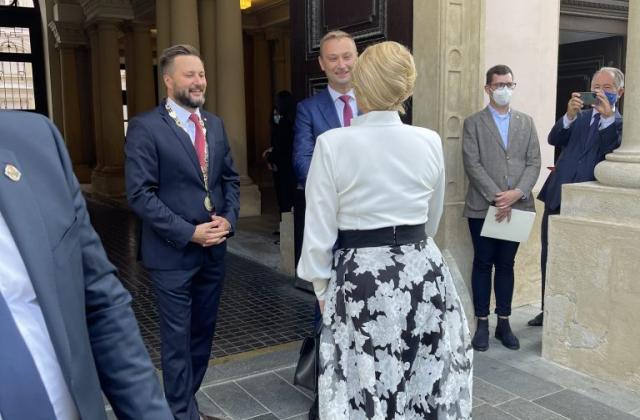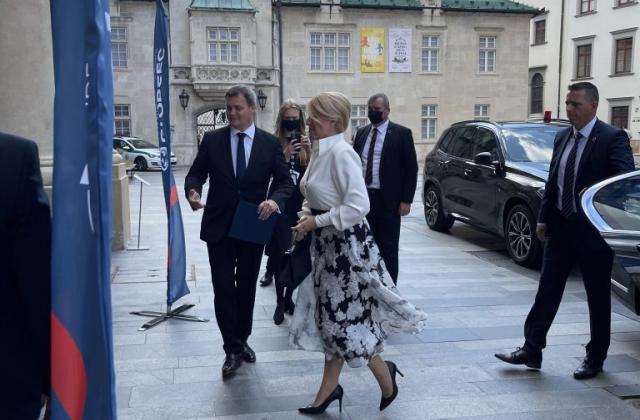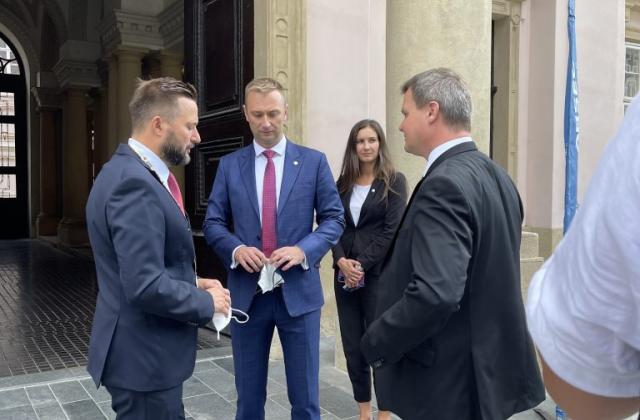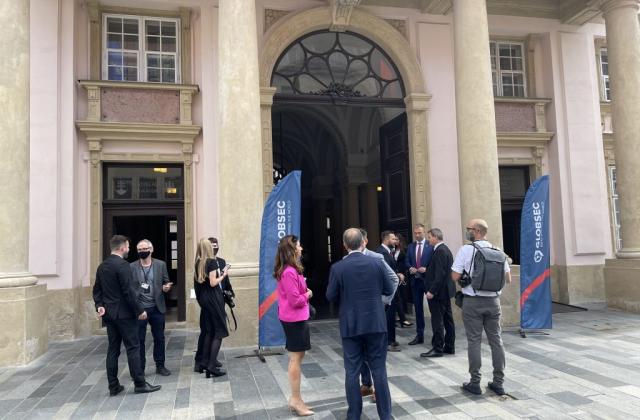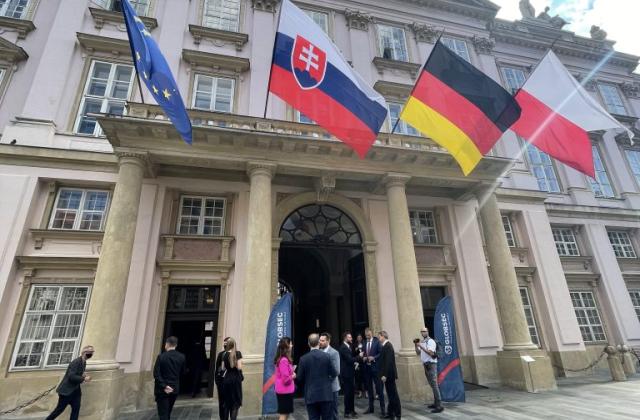Current Challenges to Democracy: A Discussion with H.E. Frank-Walter Steinmeier, President of the Federal Republic of Germany and H.E. Zuzana Čaputová, President of the Slovak Republic - Key Takeaways
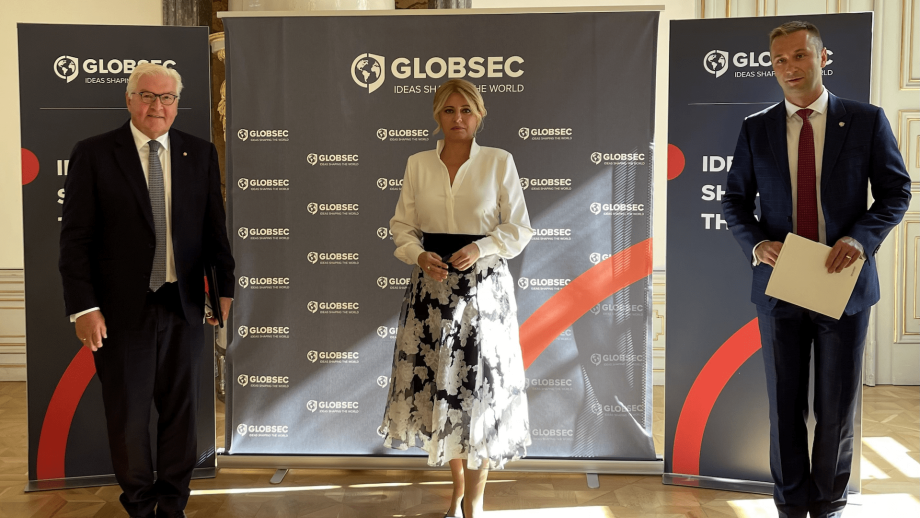
On September 2, GLOBSEC organised a discussion with the President of the Federal Republic of Germany, Frank-Walter Steinmeier and the President of the Slovak Republic, Zuzana Čaputová. The event started with opening remarks delivered by Róbert Vass, the founder and President of GLOBSEC, who welcomed both heads of states and addressed the key challenges democracies face today: pressure of disinformation, populism, and extremism.
Mr Vass emphasised that these challenges cannot be solved without cooperation. Despite the fact that Central Europe keeps being one of the key battlegrounds of undemocratic populism, successful election of leaders such as Joe Biden and Zuzana Čaputová on the agenda of renewing democratic values, rule of law and corruption, brings hope. Furthermore, Slovakia – with its widespread mobilisation of the media and civil society after the murder of the journalist Ján Kuciak – serves as an example of how the society can indeed mobilise when threatened by undemocratic forces.
He pointed out some key findings from GLOBSEC Trends, analysing public perceptions in 10 CEE countries serving as the entry points for the discussion:
- Germany is perceived as a key strategic partner by the majority of Central Europe,
- Angela Merkel is also perceived positively by the majority,
- Democracy based on equality, human rights and freedoms and rule of law is supported by 84% of the region, but when the word “liberal” is added, democracy lacks such an overwhelming support.
President Zuzana Čaputová delivered opening and closing remarks. She emphasised the challenge of constant pressures to undermine democracy, its principles and institutions which should protect it. This challenge is particularly hurting in younger democracies where the attacks on the media and journalists have intensified and where the spread of disinformation is taking a toll on people’s lives. Societies are facing the crises of trust in facts, frustration, and anger. She thus called for a reflection on the mistakes democracies have made and for a need to invest in searching for solutions at all levels. Specific solutions include the work of CSOs supporting tolerance and inclusion and projects on media literacy, on inclusion of youth into democratic processes and on digital responsibility. On a broader scale, she called for the need to re-discover the dialogue and thus limit the fragmentation and polarisation of the society. These challenges are equally faced by young and old democracies.
In her closing remarks, President Čaputová addressed the trust within the society as a key prerequisite for its functioning. On the other hand, the challenge of “trustworthiness” is much more difficult for political actors upholding to key democratic values and principles than for populists. She thus called for the preservation and consistency in communicating these values and for the need to cooperate between pro-democratic forces to resist the efforts of the undemocratic ones to divide them.
In his discussion with the civil society and academia, President Frank-Walter Steinmeier responded to 10 questions and remarks from the audience. Here are the key takeaways from his remarks:
- Democracies are in constant change and differ between each other. Therefore, one magic formula for solving the many crises our democracies face does not exist. The debate about democracy cannot be static – it must try to adapt to new challenges, include various communities and look for compromises. We should agree on the basics – those who attack the media, those who restrict the academic freedom or try to dictate the public discourse from their institutions are undermining democracy and its values.
- What connects us – various democracies in Europe and the US – is the trust in democracy as the best system of governance bringing prosperity and equality. Therefore, a debate both on the national and EU level trying to overcome the differences through a dialogue is important. The EU-level discussions often generate more debate within the states.
- Trust, capability of listening to each other, political culture, and ability to make compromises, must be restored. Trust is a key prerequisite for democracies to function. It is based on a fragile agreement between the citizens and the state, in which each part knows how to play its role. The way the state plays its role forms how the trust of their citizens evolves. This becomes a key challenge during the crisis.
- Democracy is either liberal or it does not exist. Elected representatives must function in their roles to represent the whole society – they must respect minorities; they must fight corruption and safeguard the rule of law. These are the key defining elements of democracy, not only elections, as the supporters of illiberal democracy tend to claim.
- Same rules which exist in the paper media and TV media must apply in digital media. Loud minority, spreading hate and aggression often dominates social media and uses the digital tools to manipulate the public discourse. It simply should not freely flood the information space when breaching the laws which function in the non-online space.
- Social inequality plays a key role in dissatisfaction with democracy. There are and will be challenges linked to structural changes, new economic processes, demography, energy transition and employment. Less developed regions should be included into the economic transformation and digitalisation the world is currently facing. The role of these people in the society should not be neglected.
- Russia is a difficult partner with whom the discussion must be preserved, although their commitment to Helsinki Accords is questionable and should be reminded. The future of relations with Russia is not easily predictable.
- Joe Biden is a partner and ally respecting the democratic values, and his perspective of the world reflects the changing balance of power. To reflect these changes, the EU might consider strengthening the European pillar within NATO.
- Culture and art are necessary for a functioning democracy. It should be in democracies’ interest to, therefore, invest in building and supporting the culture in the state.
